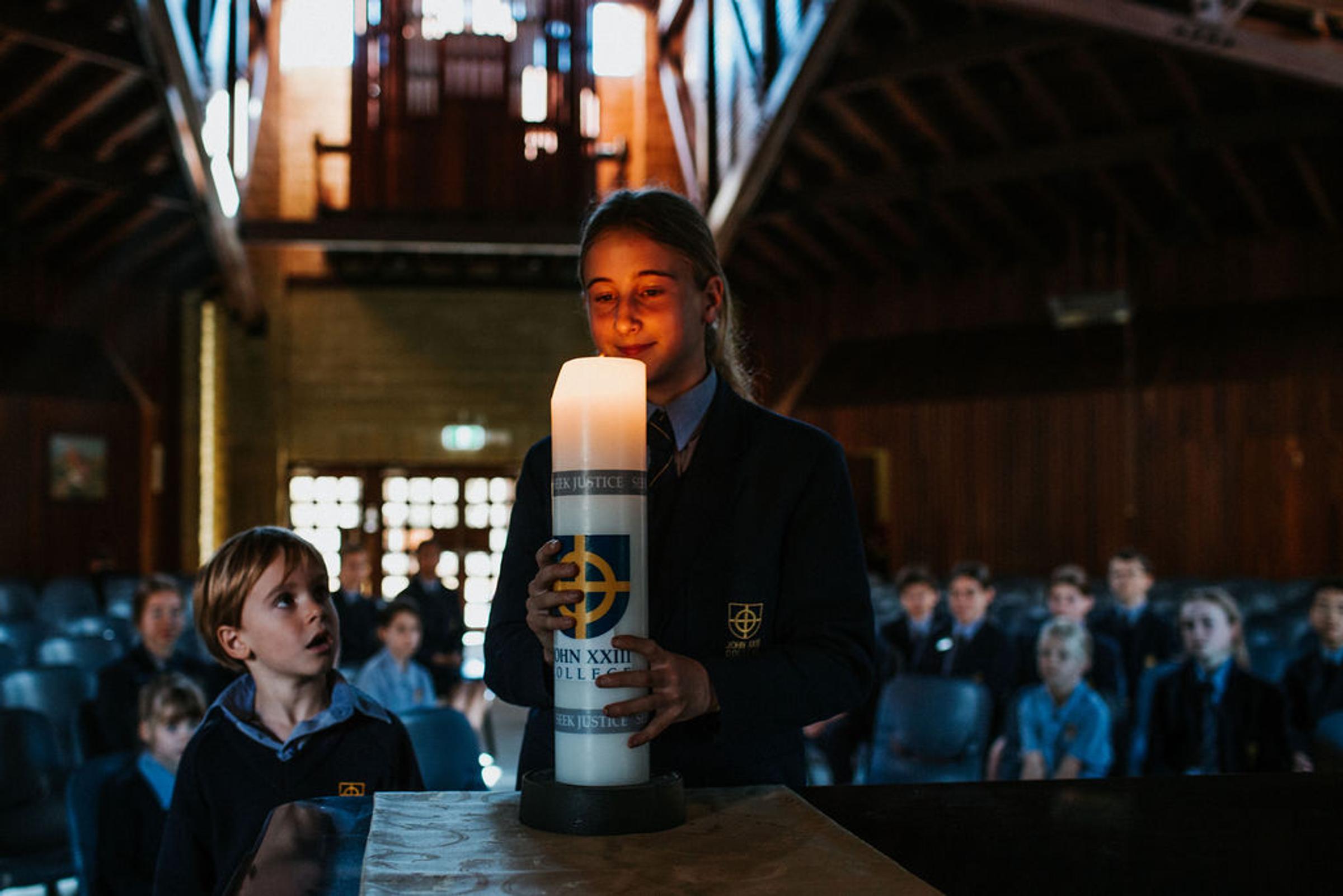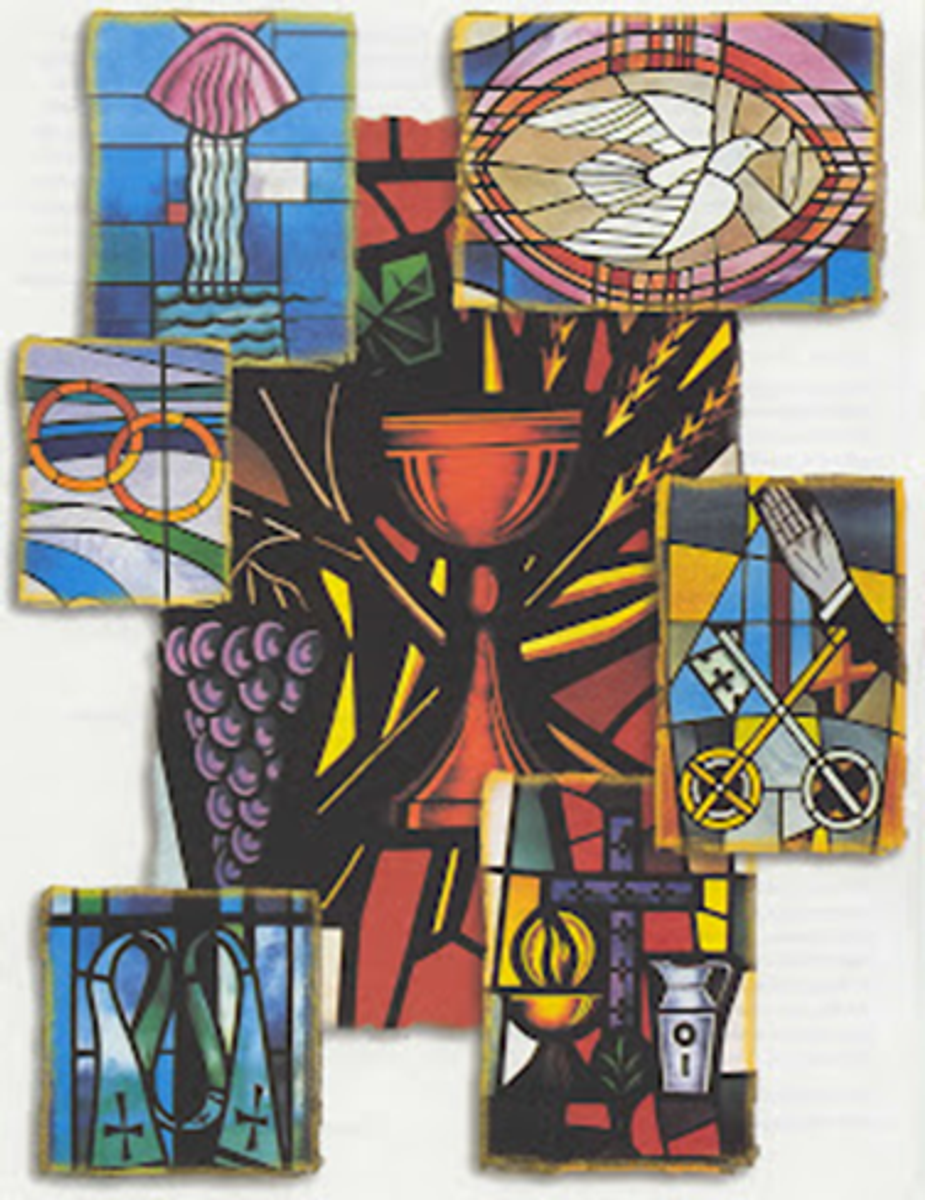Liturgy

Community Mass
Community Mass next Friday will be prepared by students in Year 11. Our Friday liturgies reflect so much of what is good in the College: joy, positive relationships, student leadership, participation and the call to ‘seek justice’ in our community and our world. New families are especially welcome – just come to the Chapel at 8:00am. There are no reserved seats and all the responses are projected on a screen, so it is ‘user-friendly’.
Students go to their homeroom when Mass ends at 8:30, while in the adjacent Circle of Friends café, there is coffee (or tea). Families and friends are welcome for a quick espresso before rushing off or for a chance to linger and talk over a latte.
Community Mass details:
- College Chapel
- Fridays in term time
- Starts: 8:00am and concludes 8:30am.
Do you have a child in Year 3, 4 or 6?
It is a special year for these students as they look forward to celebrating the sacraments in their parish with their family.
It is the parent’s right and responsibility to enrol their child in a parish sacrament program, and you are encouraged to get this done at the earliest. It is worth noting that even children preparing for sacraments in a Catholic school still need to be enrolled in the parish if they intend to participate.
Please be mindful that, due to numbers, some parishes (eg Saint Thomas, Claremont) will not be able to accept enrolments from families living outside the parish geographical boundary. Parish sacrament programs may vary, but usually include a workshop and commitment Mass as well as attending the rehearsal.
Please see the College website for enrolment information received from City Beach, Claremont, Doubleview and Subiaco parishes.
The sacrament program is family-focused, parish-based, Catholic school-supported. This means that parents are respected as first educators in the faith of their children and celebrate the sacraments in their parish with their children.
The family is supported by the College Religious Education program. In Year 3, students are taught the content for First Reconciliation; in Year 4, the content for First Holy Communion and in Year 6, the content for Confirmation.
If you would like further information about the Sacrament Program please contact:
- Your parish priest or Sacrament Coordinator
- The Archdiocesan website;
- Mary-Anne Lumley mary-anne.lumley@cew.edu.au 08 9383 0513
Word Social Justice Day
‘for any organisation to thrive all the relationships within … must be based in respect and be seen and treated as a gift’
The United Nations Word Social Justice Day occurs on 20 February every year. Jesuit, Andrew Hamilton, shares a reflection that gets to the heart of what social justice means in human society, and in a college whose motto is SEEK JUSTICE.
Social justice is fairly simple to understand. It means that people must be treated with respect and equality in all their relationships. These relationships include the economic relationships between employers and staff, cultural relationships between religious and political groups, and international relationships between nations.
It is not always easy to establish what respect and equality demand in practice. It is easier to point to clear instances where due respect is lacking. The Russian invasion of Ukraine with its cost to human lives and livelihood is a patent example of disrespect in the relationships between nations. Similarly the treatment by the Chinese Government of Uighurs clearly disrespects persons who belong to a minority ethnic group and religion. The treatment of persons of Indigenous descent after invasion and conquest is so often clearly lacking in respect, as is the underpayment of vulnerable migrant workers.
The demands of social justice are often clearly seen from a distance. But they may be less clear to those who benefit from unjust relationships. In Australia descendants of settlers often fail to see the effects on the descendants of the First Australians of exclusion, disappropriation and discrimination. They may even blame Indigenous people for their predicament. If we were to see it as the result of injustice, it would imply the need to set things right with all the economic and other costs that this might bring. Similarly, if people were seen to have a right to work and fair remuneration, it would become harder for firms to sack them and for governments to make people who are unemployed live below the poverty line. It is easier to call them ‘dole bludgers’ to whom society owes nothing.
This blindness means that to win the struggle for social justice takes more than rational argument. It takes a change of mind and heart that allow us to be open to reality. A passion for justice must be grounded in an attitude that goes beyond self-interest in relationships and sees all our relationships as a gift. We see the persons who are involved in these relationships as our brothers and sisters, and not merely as customers, clients or strangers. When we make decisions about the economy, security, immigration and our health system we must take into account the welfare of the person affected by them.
Pope Benedict XVI made a major contribution to the rich body of Catholic reflection on social justice when he emphasised the gift that we are to one another in all our personal and institutional relationships. His insight underlies the increasingly accepted idea of the social bond or licence that businesses must have. They are not responsible only to their shareholders or their proprietors but to their society, and must behave in a way that does not damage people or that compensates them for unavoidable damage. They must not simply seek their own good but also the common good.
The social licence, of course is properly more than a duty imposed on business. It comes out of the recognition that for any organisation to thrive all the relationships within it and with its environment must be based in respect and be seen and treated as a gift. This attitude, which is close to love, is a source of great energy and a compass for healthy growth as persons, businesses and societies.
Father Andrew Hamilton is a Jesuit, a theologian, a writer and, among his many other roles, the Media Officer for Jesuit Social Services.

